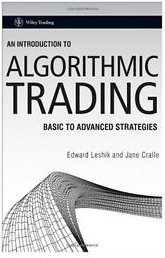Retail Algorithmic Trading For Retail Investors Profit
Using a specified collection of instructions in the format of algorithms to develop buy and sell signals and place an order is what is intended by retail algorithmic trading, to state it simply.
In order to make calculations based on the prices, every algorithm may be considered to have accessibility to both previous and real-time pricing of the commodities that can be purchased and sold.
For the sake of achieving the best prices, the algorithm also might fragment the transaction into portion sizes that are then processed at varying moments.
The benefits of the new market period driven about by algorithmic trading have yet to be entirely realised.
Can a retail trader do algo trading?

When starting out in retail algorithmic trading, it’s understandable to wonder if it is still sustainable to contend with the major institutional quant firms. Well, yes. A retailer can also do trading.
A retail algo trader can engage with a firm simply by employing their investment strategy, and there are numerous methods to accomplish this.
The most crucial thing is that retail traders realize that in order to break into the realm of algorithmic trading, they must possess a strong grasp of both investing and algorithmic trading.
However, as algorithmic traders could have an opportunity against manual traders on the market, avoiding algorithmic trading could have an influence on retail traders.
Benefits of Retail Algorithmic Trading
Here are some of the major benefits of retail algorithmic trading.
1. Increased Market Reach
The fact that it enables traders to formulate a strategy quantitatively is among the chief factors why quantitative trade has been gaining in popularity. In order to manage risks, it also employs modeling approaches.
Additionally, this permits them to deal in financial products that would otherwise be too risky for regular participants, like options and futures contracts.
2. Improved Execution Speed
The fundamental justification for this is that, in order to speed the execution of advantageous transactions while employing a trading strategy that is beneficial for you, you should be able to do so.
When your wins exceed your losses in trading, can you come out winning. Additionally, it will be plenty to compensate for your expenditures and attempts. The same can be accomplished using algorithmic trading.
3. Reduced Costs
Trading using algorithms allows enormous quantities of transactions to be performed quickly. Transaction expenses are decreased as a result of completing numerous trades.
4. Greater Accuracy
While it is common for traders to make errors and incorrectly misinterpret technical analysis, computers would just not commit such mistakes in optimal conditions. As a consequence, the activities are carried out as precisely as practicable.
Types of Retail Algorithmic Trading
How algo trading uses different models than quant trading strategies.
Algorithmic traders frequently use relatively traditional technical analysis, while quant traders often use cutting-edge mathematical methods.
To identify trading positions, algorithmic trading typically only examines charts and data from exchangers.
However, the employment of many datasets and models is a characteristic of quantitative trading. There are in general, different types of retail algorithmic trading all of them having their own distinctions.
High-Frequency Trading (Hft)
High-frequency trading, or HFT, is a form of trading in which many orders are executed in a short amount of time by the use of potent computer programs.
Multiple markets are evaluated using complex algorithms, and orders are then performed based on the condition of the markets. Traders with the most extraordinary execution speeds are typically more profitable than those with lower implementation speeds.
Statistical Arbitrage
The phrase “statistical arbitrage” (also referred to as “stat arb”) refers to a type of trading technique that make use of mean reversion analysis to invest trades in varied arrays of up to thousands of stocks over a concise amount of time, usually just a few seconds but occasionally even many days.
Is Algo Trading Profitable for Retail Traders?
Yes! Given that you get a few things right, algorithmic trading can be successful. These things include appropriate risk management techniques and backtesting and validation procedures that are accurate.
If you want capital preservation and growth check out retirement asset revesting.
You can only guess if you’re an algorithm trader. To increase the probability that trading strategies will continue to be effective well into the future, you should instead depend on past backtests to evaluate their performance.
Your ability to steer well clear of many of the errors that discretionary traders constantly make is likely your biggest edge. Lack of concentration, for example, will not be a significant problem now when it comes to messing up or issuing improper orders.
One of the most challenging components of any trading method is dealing with one’s emotions and psychological aspects of trading.
Discretionary traders commonly encounter difficulties completing their following trades and sticking to their predefined rules as a consequence of experiencing withdrawals that are still within legal bounds.
This problem is far less frequent for algorithmic traders to encounter because they are not actively engaged in the execution of their trading strategies.
Related: CGS – Consistent Growth Strategy
Risks and Challenges of Retail Algorithmic Trading
- Dependence on Technology
- Uncontrollable by Humans
- Constant Watchfulness is Required
- Knowing the programming process is necessary
- Being unable to comprehend irrational markets
The world’s institutional investors and high-frequency trading companies are not out of direct conflict with retail traders. Retail traders profit from the existence and operation of such entities since it assists the markets in staying fluid and makes it easier for them to bargain reasonable rates.
How to get started with Retail Algorithmic Trading
1. Building A Strategy
Strategies of Algorithmic trading are the most crucial component. Make sure these components are present in your strategy:
- The entrance, exit, stop loss, and take profit rules for trading are well defined.
- Portfolio management, which denotes a way of choosing which stocks to trade
- Since it was often said that there are only two methods for making money: one is to keep it while the other is to keep it, managing risk is the most critical element of the plan.
- Make provisions for unforeseen circumstances – There will be occasions when your algorithm does not comprehend market conditions; such times are rare, but they can wash out your whole portfolio, so ensure that you understand how to factor this into your algorithms.
2. Testing And Backtesting
Algorithmic trading software is essential for efficient algorithmic trading, but it is not usually provided by your broker, therefore it is not a need.
As a retail trader, you may buy pre-made trading platform if you need it for certain tasks, such backtesting before putting a trading strategy into action.
3. Programming Skills
To code an algorithmic trading strategy, you don’t need to be an experienced programmer, but you do need some basic skills and experience.
You can code your algorithmic trading strategies pdf using any number of various languages.
The huge libraries of R & Python and the support provided by different trading software are what makes them the most famous among algo traders.
You can also read algorithmic trading books that teach all the algo trading strategies pdf.
Conclusion
The what, why, and how of algorithmic trading were addressed in this article, which also covered several vital elements of retail algorithmic trading.
A solid working expertise of the sector is essential if you wish to become adept at algorithmic trading.
FAQs
1- Is retail algo trading an economically viable source of income?
It varies. There are obviously good traders, bad traders, and everything else in between.
2- Is Retail quant trading possible like let’s say trading crypto , FX or options ??
Depending on your strategy. The majority of individuals won’t have the funds or computing capacity to make this viable, so forget about employing any sort of arbitrage technique.
Check other services by Chris Vermeulen thetechnicaltrader.com, thegoldandoilguy.com & revesting.com


